 W
WPan-Africanism is a worldwide movement that aims to encourage and strengthen bonds of solidarity between all indigenous and diaspora ethnic groups of African descent. Based on a common goal dating back to the Atlantic slave trade, the movement extends beyond continental Africans with a substantial support base among the African diaspora in the Americas and Europe.
 W
WGreater Albania is an irredentist concept that seeks to unify the lands that many Albanians consider to form their national homeland, based on claims on the present-day or historical presence of Albanian populations in those areas. In addition to the existing Albania, the term incorporates claims to regions in the neighbouring states, the areas include Kosovo, the Preševo Valley of Serbia, territories in southern Montenegro, northwestern Greece, and a western part of North Macedonia.
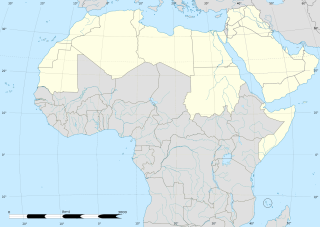 W
WPan-Arabism is an ideology that espouses the unification of the countries of North Africa and Western Asia from the Atlantic Ocean to the Arabian Sea, which is referred to as the Arab world. It is closely connected to Arab nationalism, which asserts the view that the Arabs constitute a single nation. Its popularity reached its height during the 1950s and 1960s. Advocates of pan-Arabism have often espoused socialist principles and strongly opposed Western political involvement in the Arab world. It also sought to empower Arab states against outside forces by forming alliances and, to a lesser extent, economic co-operation.
 W
WThere were many areas annexed by Nazi Germany both immediately before and throughout the course of World War II. Territories that were part of Nazi Germany before the annexations were known as the "Altreich".
 W
WThe Balkan Federation project was a left-wing political movement to create a country in the Balkans by combining Yugoslavia, Albania, Greece, Bulgaria, and Romania.
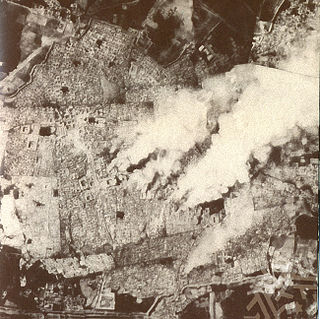 W
WThe Basmachi movement was a decentralized movement which undertook a protracted uprising against Russian Imperial and Soviet rule by the Muslim peoples of Central Asia. The movement's roots lay in the anti-conscription violence of 1916 that erupted when the Russian Empire began to draft Muslims for army service during World War I. In the months following the October 1917 Revolution the Bolsheviks seized power in many parts of the Russian Empire and the Russian Civil War began. Turkestani Muslim political movements attempted to form an autonomous government in the city of Kokand, in the Fergana Valley. The Bolsheviks launched an assault on Kokand in February 1918 and carried out a general massacre of up to 25,000 people. The massacre rallied support to the Basmachi movements who waged a guerrilla and conventional war that seized control of large parts of the Fergana Valley and much of Turkestan. The group's notable leaders were Enver Pasha and, later, Ibrahim Bek.
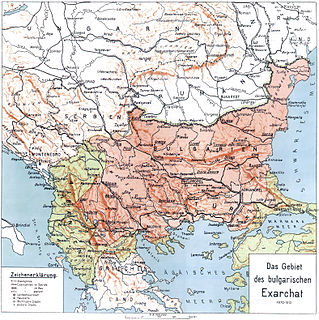 W
WGreater Bulgaria is a term to identify the territory associated with a historical national state and a modern Bulgarian irredentist nationalist movement which would include most of Macedonia, Thrace and Moesia.
 W
WBundu dia Kongo, known as BDK, is a new religious movement with a political and cultural agenda that is associated with the Kongo ethnic group. It was founded in June 1969 by Ne Muanda Nsemi, who is the group's current leader, and is mainly based in the Kongo Central (Bas-Congo) province in the Democratic Republic of the Congo. The movement supports Kongo nationalism and the creation of an ethnically-Kongo state that would encompass parts of the modern-day Democratic Republic of the Congo, Angola, Gabon and the Republic of the Congo.
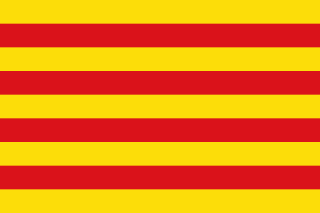 W
WCatalan nationalism is the ideology asserting that the Catalans are a nation.
 W
WPan-Celticism, also known as Celticism or Celtic nationalism is a political, social and cultural movement advocating solidarity and cooperation between Celtic nations and the modern Celts in North-Western Europe. Some pan-Celtic organisations advocate the Celtic nations seceding from the United Kingdom and France and forming their own separate federal state together, while others simply advocate very close cooperation between independent sovereign Celtic nations, in the form of Irish nationalism, Scottish nationalism, Welsh nationalism, Breton nationalism, Cornish nationalism and Manx nationalism.
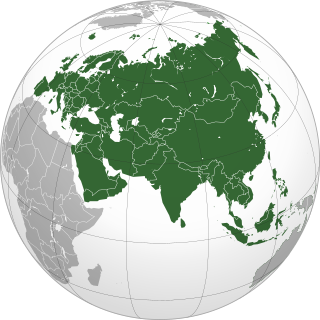 W
WEurasianism is a political movement in Russia that posits that Russian civilisation does not belong in the "European" or "Asian" categories but instead to the geopolitical concept of Eurasia. Originally developing in the 1920s, the movement was supportive of the Bolshevik Revolution but not its stated goals of enacting communism, seeing the Soviet Union as a stepping stone on the path to creating a new national identity that would reflect the unique character of Russia's geopolitical position. The movement saw a minor resurgence after the collapse of the Soviet Union at the end of the 20th century, and is mirrored by Turanism in Turkic and Finnic nations.
 W
WThe Fertile Crescent Plan was an Iraqi Hashemite proposal for the union of the Kingdom of Iraq with Mandatory Syria, Mandatory Palestine, and Transjordan. Nuri as-Said, prime minister of Iraq, presented the plan to British officials during World War II, when it appeared that France had become too weak to hold on to Syria.
 W
WPan-Germanism, also occasionally known as Pan-Germanicism, is a pan-nationalist political idea. Pan-Germanists originally sought to unify all the German-speaking people – and possibly also Germanic-speaking peoples – in a single nation-state known as Großdeutschland.
 W
WThe Greater East Asia Conference was an international summit held in Tokyo from 5 to 6 November 1943, in which the Empire of Japan hosted leading politicians of various component members of the Greater East Asia Co-Prosperity Sphere. The event was also referred to as the Tokyo Conference.
 W
WGreater Finland is an irredentist and nationalist idea that emphasized territorial expansion of Finland. The most common concept of Greater Finland was defined by natural borders encompassing the territories inhabited by Finns and Karelians, ranging from the White Sea to Lake Onega and along the Svir River and Neva River—or, more modestly, the Sestra River—to the Gulf of Finland. Some proponents also included the Kola Peninsula, Finnmark, Torne Valley, Ingria, and Estonia.
 W
WThe Greater Germanic Reich, fully styled the Greater Germanic Reich of the German Nation was the official state name of the political entity that Nazi Germany tried to establish in Europe during World War II. The territorial claims for the Greater Germanic Reich fluctuated over time. As early as the autumn of 1933, Hitler envisioned annexing such territories as Bohemia, Western Poland and Austria to Germany and creation of satellite or puppet states without economies or policies of their own.
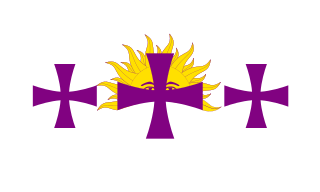 W
WPanhispanism is a political trend aimed to achieve social, economic, and political cooperation of the Spanish-speaking countries, principally those of Hispanic America, due to the distance between Spain, Western Sahara and Equatorial Guinea. It focuses principally on the former Spanish Empire's territories in North, Central and South America. It has been present consistently in literature, revolutionary movements, and political institutions. The term may be also used to talk specifically about projects of Hispanic American unity held by Simón Bolívar and José de San Martín.
 W
WHungarian irredentism or Greater Hungary are irredentist and revisionist political ideas concerning redemption of territories of the historical Kingdom of Hungary. The idea is associated with Hungarian revisionism, targeting at least to regain control over Hungarian-populated areas in Hungary's neighbouring countries. Hungarian historians did not use the term Greater Hungary, because the "Historic Hungary" is the established term for the Kingdom of Hungary before 1920.
 W
WIberian federalism, pan-Iberism or simply Iberism are the names for the pan-nationalist ideology supporting the federation of all the territories of the Iberian Peninsula.
 W
WIndian reunification refers to the potential unification of India with what is now Bangladesh and Pakistan, the latter of which was partitioned from British India in 1947.
 W
WGreater Indonesia or Greater Malay, in Indonesian and Malaysian Indonesia Raya or Melayu Raya, was a political concept that sought to bring the so-called Malay race, only part of which were the actual Malays, together by uniting the British territories of Malaya and Borneo with the Dutch East Indies became a large and sovereign nation. It was espoused by students and graduates of Sultan Idris Training College for Malay Teachers in the late 1920s, and individuals from Sumatra and Java including Mohammad Yamin and Sukarno in the 1950s. Indonesia Raya is also the name of the Indonesian national anthem.
 W
WPan-Iranism is an ideology that advocates solidarity and reunification of Iranian peoples living in the Iranian plateau and other regions that have significant Iranian cultural influence, including the Persians, Azeris, Lurs, Gilaks, Mazanderanis, Kurds, Zazas, Talysh, Tajiks of Tajikistan and Afghanistan, Pashtuns, Ossetians, Baloch of Pakistan, etc. The first theoretician was Dr Mahmoud Afshar Yazdi.
 W
WIrredentism is a political and popular movement that claims, reclaims, and seeks to occupy territory that the movement's members consider to be a "lost" territory, based on history or even legend. The breadth of this definition's scope—sometimes despite unclarities of the historical bounds of the putative nations or peoples—is subject to terminological disputes about any underlying claims of expansionism.
 W
WItalian irredentism was a nationalist movement during the late 19th and early 20th centuries in Italy with irredentist goals which promoted the unification of geographic areas in which indigenous peoples considered to be ethnic Italians and/or Italian-speaking individuals formed a majority, or substantial minority, of the population.
 W
WThe League of Fiume was one of the many political experiments that took place during the Italian Regency of Carnaro period when Gabriele d'Annunzio and the intellectuals that took part with him in the Fiume Endeavor attempted to establish a movement of non-aligned nations. In their plans, this league was meant to be in antithesis to the Wilsonian League of Nations, which was seen by many of Fiume's intellectuals as a mean to perpetuate a corrupt and imperialist status quo.
 W
WIndependent Macedonia was a conceptual project of the Internal Macedonian Revolutionary Organization (IMRO) to create an independent Macedonia, during the interwar period. Nevertheless, it was realized after the end of the Cold War.
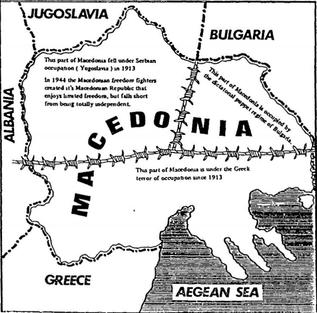 W
WUnited Macedonia, or Greater Macedonia, is an irredentist concept among ethnic Macedonian nationalists that aims to unify the transnational region of Macedonia in Southeastern Europe into a single state that would be dominated by ethnic Macedonians. The proposed capital of such a United Macedonia is the city of Thessaloniki, the capital of Greek Macedonia, which ethnic Macedonians and the Yugoslav leader Josip Broz Tito had planned to incorporate into their own states.
 W
WThe Greater Malayan Confederation, or Maphilindo, was a proposed, nonpolitical confederation of the three Southeast Asian countries.
 W
WThe Megali Idea was an irredentist concept that expressed the goal of reviving the Byzantine Empire, by establishing a Greek state, which would include the large Greek populations that were still under Ottoman rule after the end of the Greek War of Independence (1821–1828) and all the regions that traditionally belonged to Greeks since ancient times.
 W
WGreater Moldova or Greater Moldavia in an irredentist concept according to which the territories of the Republic of Moldova should be expanded to the lands that used to belong to the Principality of Moldavia, specifically including Western Moldavia and the whole of Bessarabia, as well as Bukovina and sometimes, parts of Transylvania. The idea of Greater Moldova was briefly promoted by the Soviet Moldavian politician Nikita Salogor in the aftermath of World War II, and has seen some marginal resurgence in the 21st century.
 W
WPan-Mongolism is an irredentist idea that advocates cultural and political solidarity of Mongols. The proposed territory, called "Greater Mongolia", usually includes the independent state of Mongolia, the Chinese regions of Inner Mongolia and Dzungaria, and the Russian republic of Buryatia. Sometimes Tuva, the Altai Republic and parts of Zabaykalsky Krai and Irkutsk Oblast are included as well. As of 2006, all areas in Greater Mongolia except Mongolia have non-Mongol majorities.
 W
WGreater Netherlands is a hypothetical monolingual polity formed by fusing the two Dutch-speaking regions of Flanders and the Netherlands. The concept was originally developed by Pieter Geyl, who argued that the two only separated during the Eighty Years' War against Spain in the 16th century.
 W
WThe International Paneuropean Union, also referred to as the Paneuropean Movement and the Pan-Europa Movement, is the oldest European unification movement. It began with the publishing of Count Richard von Coudenhove-Kalergi's manifesto Paneuropa (1923), which presented the idea of a unified European State. Coudenhove-Kalergi, a member of the Bohemian Coudenhove-Kalergi family and the son of an Austro-Hungarian diplomat and a Japanese mother, was the organisation's central figure and President until his death in 1972.
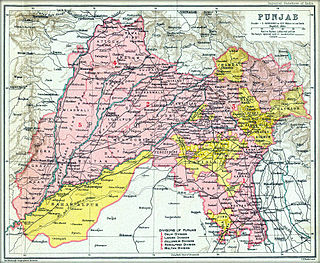 W
WThis article refers to the ideology that asserts Punjabi cultural solidarity. For the militant separatist movement aimed at creating an independent Sikh country, see Khalistan.
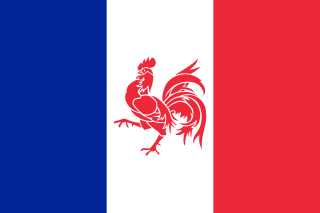 W
WRattachism or Reunionism (Réunionisme) is a minor political ideology which calls for the French-speaking part of Belgium or Wallonia to secede from the state of Belgium and become part of France. Brussels, which is majority French-speaking but enclaved in Flanders, may be included within this ideology as may the six Flemish municipalities with language facilities for French-speakers around Brussels. It can be considered a French-speaking equivalent of Orangism or Grootneerlandisme in Flanders.
 W
WThe term Greater Romania usually refers to the borders of the Kingdom of Romania in the interwar period. It also refers to a pan-nationalist idea.
 W
WThe unification of Romania and Moldova is a popular concept in the two countries beginning with the late 1980s, during the collapse of communism. The Romanian Revolution in 1989 and the independence of Moldova in 1991 further contributed to the development of a movement for the unification of the two Romanian-speaking countries. The question of reunification is recurrent in the public sphere of the two countries, often as a speculation, both as a goal and a danger. The idea, while widespread in Romania, is only supported by a minority in Moldova.
 W
WScandinavism, also called Scandinavianism or pan-Scandinavianism, is an ideology that supports various degrees of cooperation among the Scandinavian countries. Scandinavism comprises the literary, linguistic and cultural movement that focuses on promoting a shared Scandinavian past, a shared cultural heritage, a common Scandinavian mythology and a common language or dialect continuum, and which led to the formation of joint periodicals and societies in support of Scandinavian literature and languages. Nordism expands the scope to include Iceland and Finland.
 W
WEuro-Slavism, also spelled Euroslavism, is a political concept that evolved from pan-Slavism. It aims to solve problems of Slavic peoples within the European Union. Euroslavists promote cooperation and unity among Slavic peoples, which can be achieved through European integration.
 W
WPan-Slavism, a movement which crystallized in the mid-19th century, is the political ideology concerned with the advancement of integrity and unity for the Slavic peoples. Its main impact occurred in the Balkans, where non-Slavic empires had ruled the South Slavs for centuries. These were mainly the Byzantine Empire, Austria-Hungary, the Ottoman Empire, and Venice.
 W
WGreater Somalia is a concept to unite all Somali-speaking nations comprising the regions in or near the Horn of Africa in which ethnic Somalis live and have historically inhabited. The territory historically encompassed British Somaliland, Italian Somaliland, French Somaliland, the Somali Region in the Ethiopian Empire and the former Northern Frontier District in the Colony and Protectorate of Kenya. At the present, it encompasses Somaliland, southern Somalia, eastern Djibouti, the Somali region and Dire Dawa in Ethiopia, and the Lamu, Garissa, Wajir and Mandera Counties.
 W
WPan-Turkism is a political movement which emerged during the 1880s among Turkic intellectuals of the Russian region of Shirvan and the Ottoman Empire, with its aim being the cultural and political unification of all Turkic peoples. Turanism is a closely related movement but a more general term than Turkism, since Turkism applies only to Turkic peoples. However, researchers and politicians steeped in Turkic ideology have used these terms interchangeably in many sources and works of literature. Although many of the Turkic peoples share historical, cultural and linguistic roots, the rise of a pan-Turkic political movement is a phenomenon of the 19th and 20th centuries. It was in part a response to the development of Pan-Slavism and Pan-Germanism in Europe, and influenced Pan-Iranism in Asia. Ziya Gökalp defined pan-Turkism as a cultural, academic, and philosophical and political concept advocating the unity of Turkic peoples.